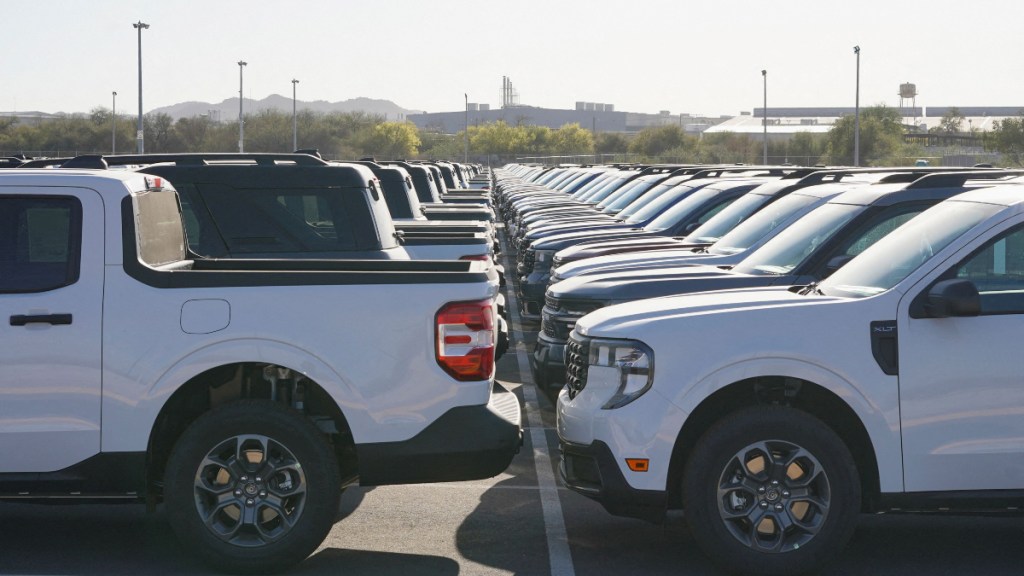US President Donald Trump has formally announced a 25 per cent import tariff on automobiles that is set to be implemented from 2 April 2025. The new policy from the Trump administration is poised to significantly impact car buyers across the nation. Announced on Wednesday, this measure aims to bolster domestic manufacturing.
However, its consequences are likely to extend to the wallets and choices of American consumers. The tariff is intended to be a permanent policy shift based on a 2019 Commerce Department investigation citing national security grounds . This move signals a long-term change in the trade landscape, with potential ramifications for the automotive market.
Trump auto import tariffs: Increase in vehicle prices
The most immediate effect for US car buyers will likely be higher prices at dealerships. A report by AP, suggests that if the full 25 per cent tariff is passed on to consumers, the average price of an imported vehicle could jump approximately by up to $12,500 depending on the model. Given that the average price of a new car in the US already hovers around $49,000, this tariff could render new vehicles significantly less affordable for many Americans.
Experts predict that this price surge will disproportionately affect middle and working-class households, potentially pricing them out of the new car market altogether and forcing them to retain older vehicles for longer.
Foreign car manufacturers are likely to employ various strategies in response to the tariff. They might absorb a portion of the added cost, thereby mitigating the price increase for consumers. Alternatively, they could fully pass on the 25 percent tariff to buyers, leading to the significant price hikes previously mentioned. Another potential response is a shift in production to the US to circumvent the tariff altogether.
Trump auto import tariffs: Change in consumer behaviour
Faced with increased costs for imported cars, US consumers may adjust their purchasing behavior. A natural response to higher prices would be a shift in demand towards domestically produced models. However, this could also lead to increased demand and potentially higher prices for domestic vehicles.
Some consumers might choose to postpone their car purchases, waiting for price stabilization or a clearer understanding of the tariff’s long-term effects. Surveys suggest that a significant majority of shoppers are aware of and concerned about the impact of tariffs, with many anticipating changes to their shopping habits, such as seeking sales or considering US-made alternatives.
Trump auto import tariffs: Reduced consumer choices
The implementation of the tariff could also impact the variety of car models available to US consumers. If importing certain models becomes economically unfeasible due to the increased costs, foreign manufacturers might decide to reduce or halt their importation . This could lead to a decrease in the diversity of options for American car buyers, particularly those with specific preferences for certain imported brands or niche vehicles.
